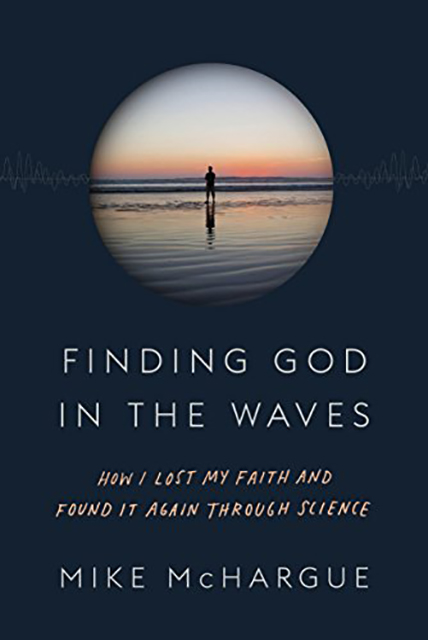New beliefs, same Faith
Science Mike’s challenging book reexamines what many Christians take for granted.
October 5, 2016
Mike McHargue, also known as Science Mike of The Liturgists and the host of Ask Science Mike, recently released his first book. “Finding God in the Waves” centers around his walk with Christ since childhood and wrestling with God’s existence when prayer did not save his parents’ marriage as McHargue expected. McHargue details his despair about becoming an atheist, accepting that one day the world would end and no higher power existed to redeem it. Perhaps the most potent fear he raises was the fear he felt of being found out as an atheist by his church, wife, mother and kids. Through his confusion, he rediscovers God as he looks out over the waves of Laguna Beach.
no happily ever after
The book does not end as just an encouraging story. McHargue takes his narrative a step further by detailing how his faith changed and how he looks at the Bible now in comparison to his old way of looking at it.
The intriguing part — and sometimes threatening part — is the fact that he does not leave his skepticism and fully commit to mainstream Christian beliefs. After his transformative experience in Laguna Beach, McHargue says, “If my life was a work of fiction, that moment would have all the qualities of a story climax, but there was no happily ever after… it was the start of a new chapter in my life.” The Washington Post ran an article about his story titled, “I lost my faith in God. Then I found it. Now it’s complicated.”
These complications arise from McHargue’s disassociation from what many consider important aspects of the Christian faith. For instance, he’s not convinced that Jesus physically rose from the dead because it is not scientifically proven. That is a major red flag for many believers, something McHargue understands perfectly well and addresses throughout the book.
While it seems like a fair thing to assert, it veers towards heresy. The goodness in this disagreement is that McHargue’s disbelief helps the reader understand the basis of their belief in a nuanced way. What testifies to the resurrection of Christ is a historical basis, but perhaps not a scientific one. That does not demean the historical basis in any way, it simply reveals a legitimate concern of McHargue.
patiently seek
Although still skeptical about many things, his suspicion regarding certain topics does not lead him to doubt the existence of God. Rather, it pushes him to patiently seek the most satisfactory answers. This mindset for discovering answers births what may be many errors in his book, but also to profoundly refreshing ways of viewing the world and the Bible.
Mike developed axioms about his faith, regarding God, Jesus, prayer and more to help him hold onto his spirituality in the midst of his crippling doubt. On faith he wrote, “Faith is at least a way to contextualize the human need for spirituality and to find meaning in the face of mortality. Even if this is all that faith is, spiritual practices can be beneficial to human cognition, emotions and culture.” Each axiom acts as a “life raft” for people who feel overwhelmed by evidence which seems to make Christianity obsolete.
To fully appreciate this book, the reader needs to understand that McHargue is bravely participating in a discussion about the reality of our existence. In any discussion, people will find themselves right about a few things and wrong about a few others. Ultimately, his book reminds all of us that when someone speaks up, we should lean in and listen in order to discover truth alongside them.







